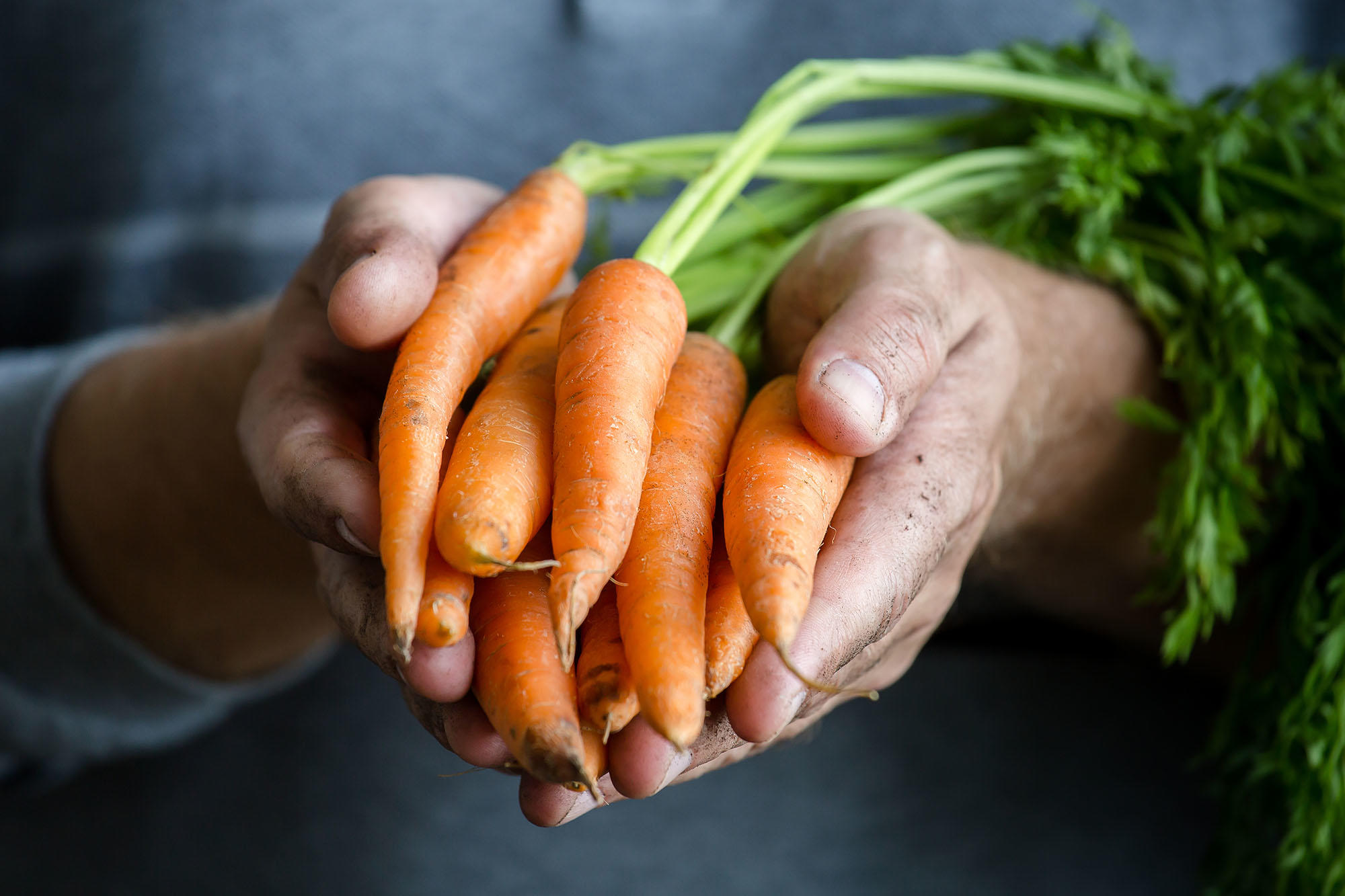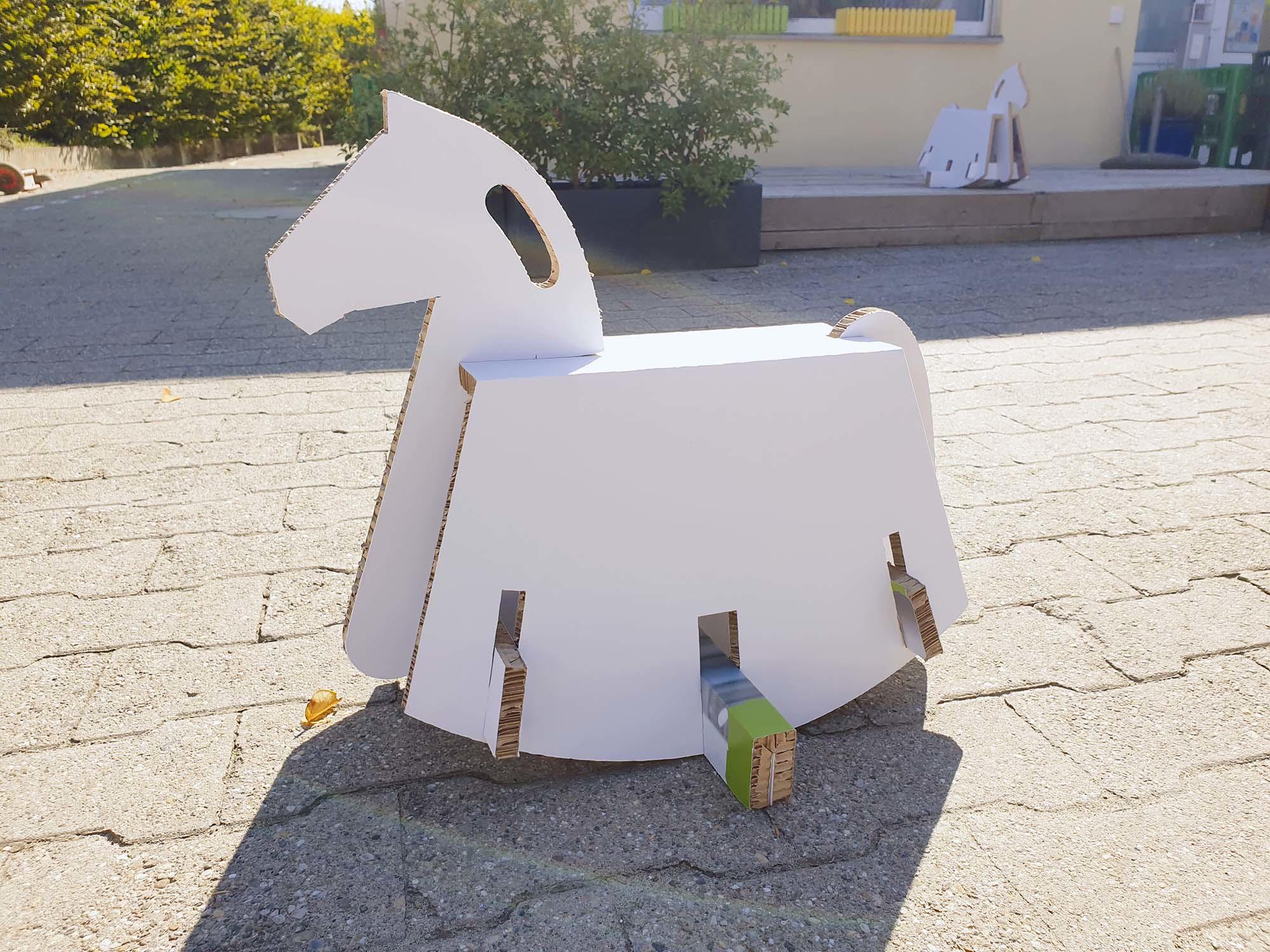Today we also think about tomorrow
Thinking of the environment from raw material to consumption.
The 6 areas of our sustainable action
1. sustainable raw materials
We source our raw materials as sustainably as possible. Among other things, we use raw materials from organic, sustainable and certified cultivation.
2 Reduce, reuse, recycle
We pay attention to all facets of sustainability with a focus on environmentally friendly packaging solutions.
3. fight against food waste
Too much food ends up in the waste. We want to counteract this with our products and solutions.
4. less energy, less CO2
When manufacturing our products, we take care to produce as resource-efficiently as possible. In doing so, we also rely on sustainable technologies.
5. mindful use of resources
We also pay attention to the sustainable use of resources in our everyday business and reuse materials as often as possible.
6. fair business partner and employer
We are a fair business partner and employer and take responsibility for people and the environment.
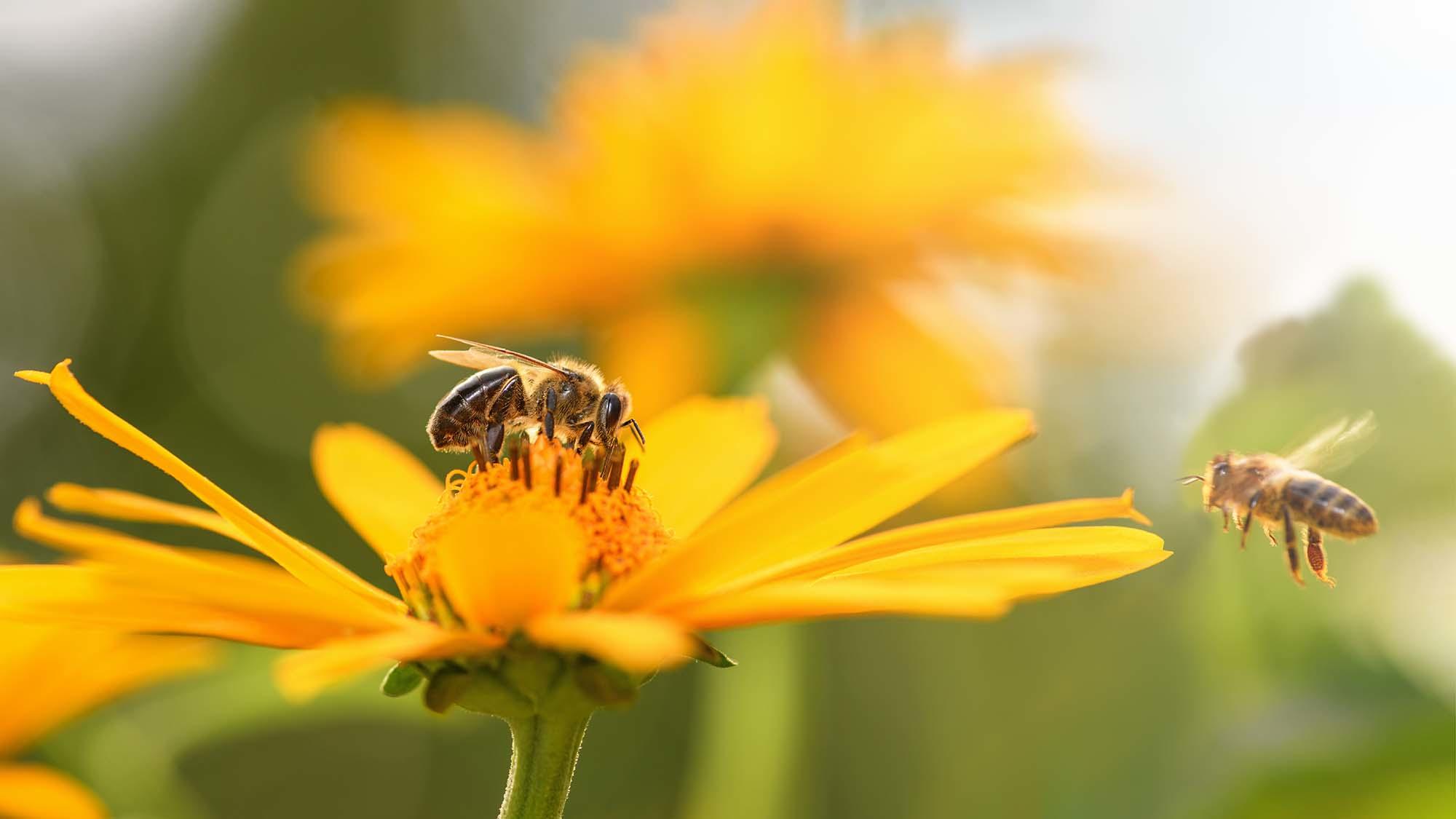
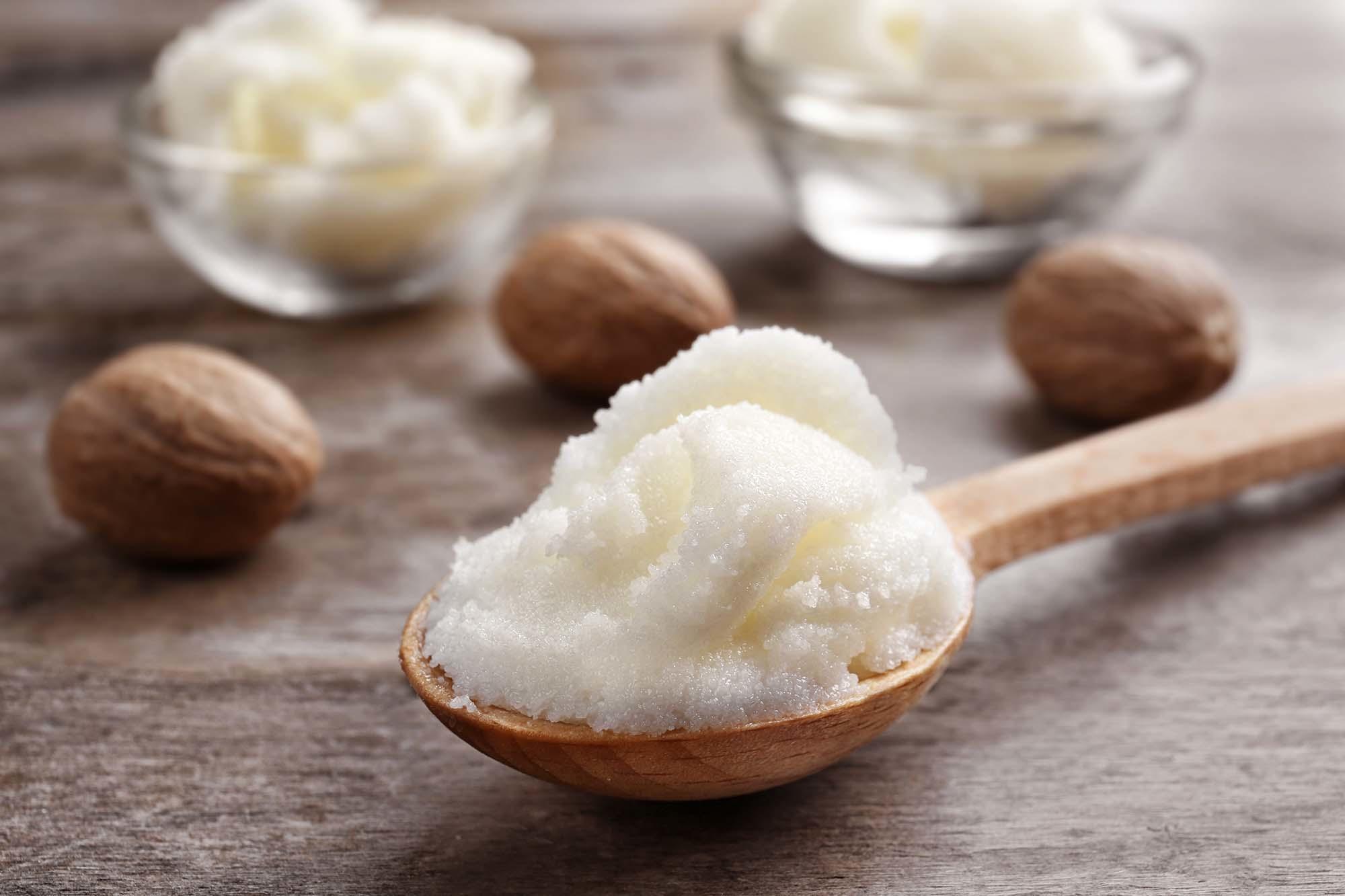
Regional, whenever
possible
We select raw materials very carefully with our suppliers.
Best raw materials for best taste
Our wide range includes products from conventional and organic cultivation. Together with our suppliers, we carefully select our raw materials and make sure that they are grown as regionally as possible. Nevertheless, there are some raw materials that do not grow in Europe. We therefore leave the cultivation and harvesting to specialists from Asia and Africa and make sure that the transport routes and means of transport are environmentally friendly. Selected, high-quality raw materials are the basis of convincing products. That's why we trust our long-standing and reliable suppliers in this area, who - just like us - are committed to maintaining a high standard of quality. For this reason, our raw materials and products are subject to constant quality controls.
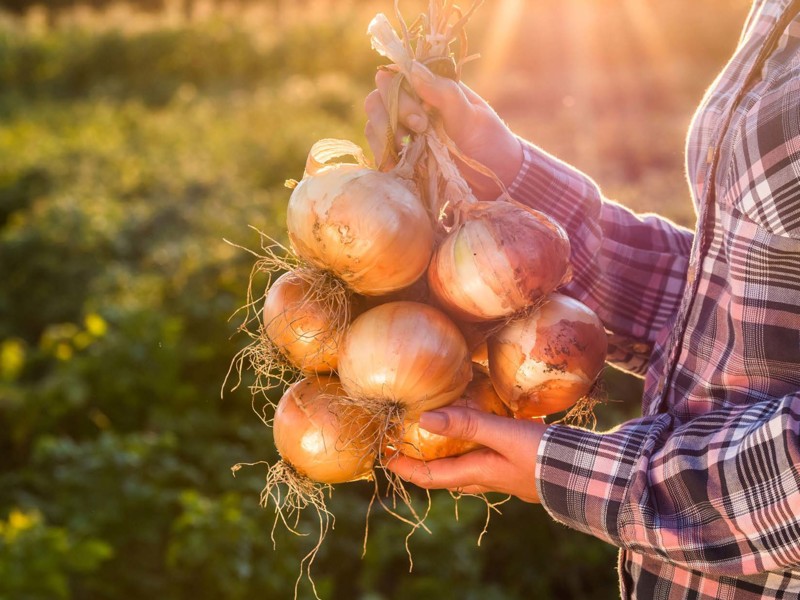
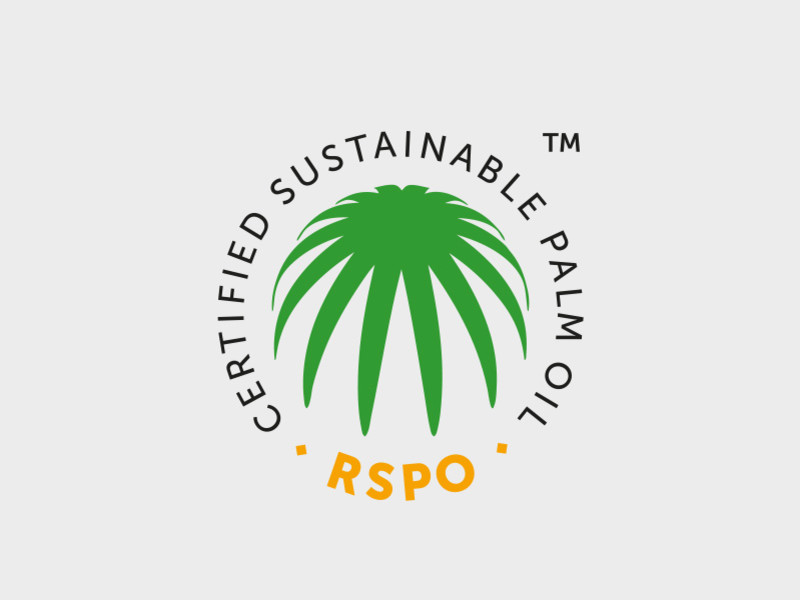
RSPO
To promote sustainable agriculture, we are a member of the Round Table on Sustainable Palm Oil, RSPO for short. This is a central organisation that promotes sustainable cultivation methods in order to limit environmental damage. For us, it is clear that we use 100% sustainable palm oil.
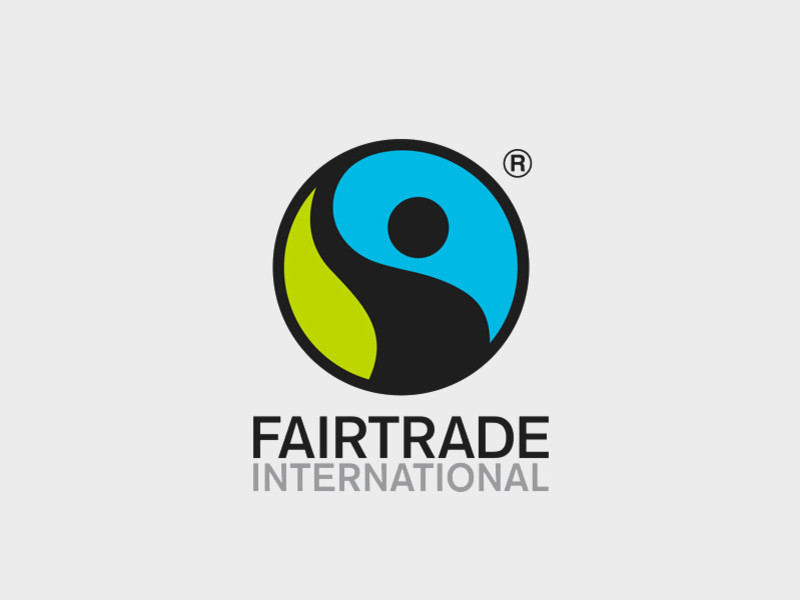
Fairtrade
Fair partnership at eye level - with this approach our products taste much better. That's why we use fair trade cocoa in the production of our food service brand Vogeley.

Less packaging material
As one of the pioneers and market leaders in the organic food segment, we have many years of development expertise. With our constantly growing organic range, we are committed to healthy soils, species-appropriate animal husbandry and resource conservation, while helping to reduce the use of pesticides and genetic engineering.
The path to sustainable packaging
Sustainable packaging protects our products from spoilage or damage and is made of environmentally friendly materials.
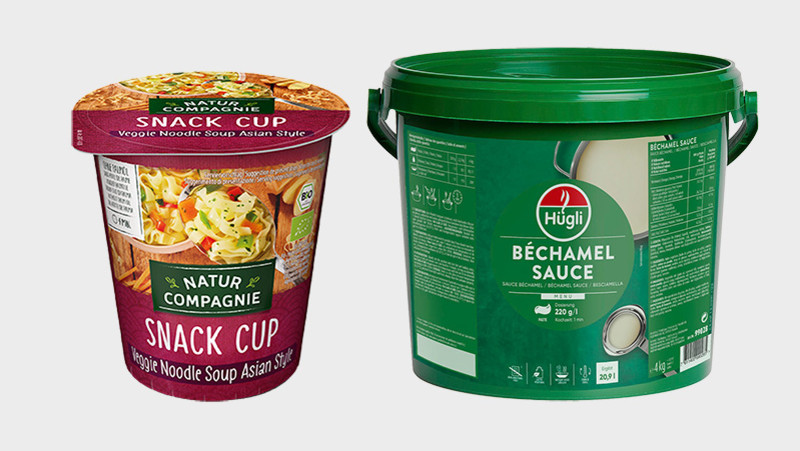
Reduce
We reduce the use of packaging materials wherever possible.
We have already reduced the use of plastic by 15% in our cup dishes and by 5-10% in our gastro buckets.
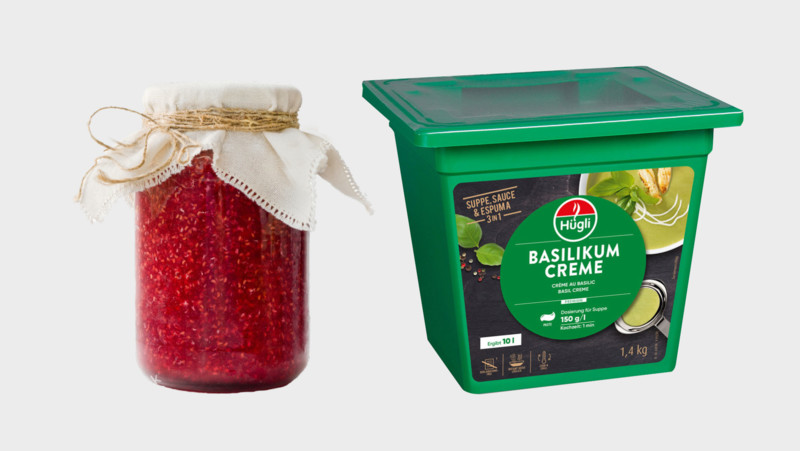
Reuse
We use packaging materials that are suitable for reuse, while using as much recycled material as possible.
Our gastronorm bowls and roll buckets in the food service area are reusable and hygienic to handle. Our fond jars can be reused, for example, for preserving jams.
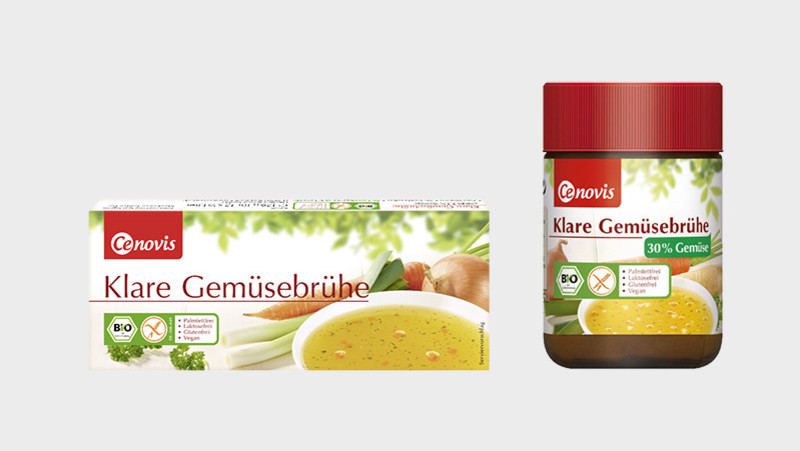
Recycle
We use packaging materials that are suitable for reuse, while using as much recycled material as possible.
The jars of our broths can be easily separated into the individual components and can thus be assigned to the correct recycling stream.
Less energy, less CO2
Optimising our energy consumption is a continuous process.
We are constantly improving our eco-efficiency at our sites.
The careful use of resources is a central concern for us as a production company in order to conserve resources, save costs and care for the environment.
Our goal is therefore to reduce energy and water consumption and to use resources more efficiently, recycling them where possible or keeping them in as closed a loop as possible in order to contribute to the preservation of the environment.
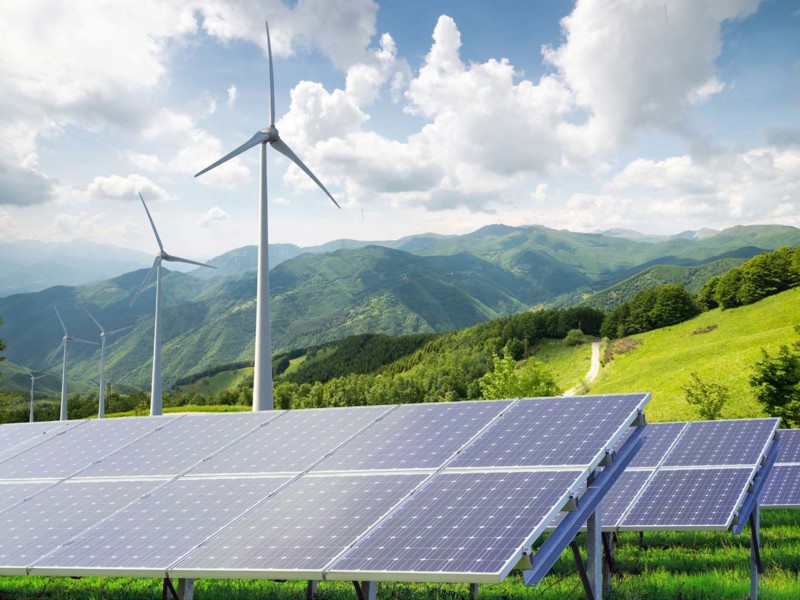
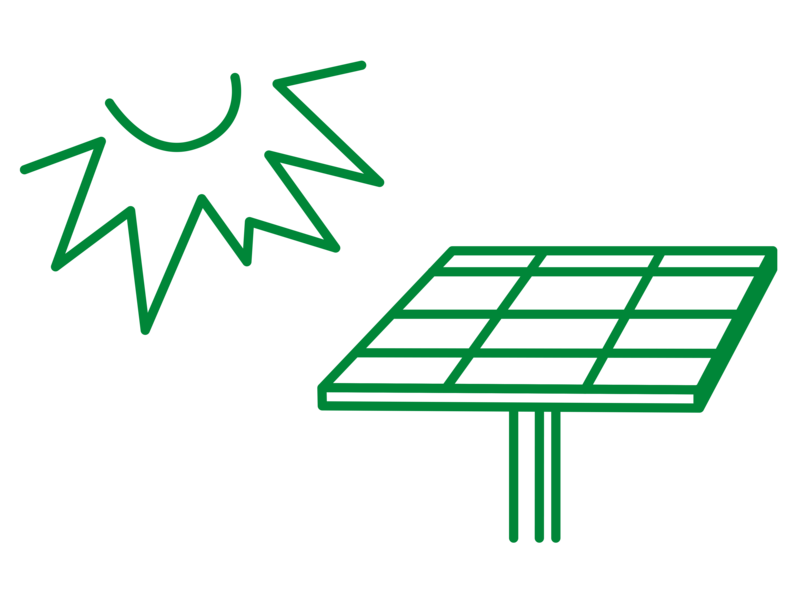
Germany and Switzerland
At our production sites in Radolfzell and Steinach, we already use 100 % green electricity and save around 260,000 kWh/year annually through the use of photovoltaic systems for feeding back into the power grid or for our own needs. This corresponds to the annual consumption of 53 households.
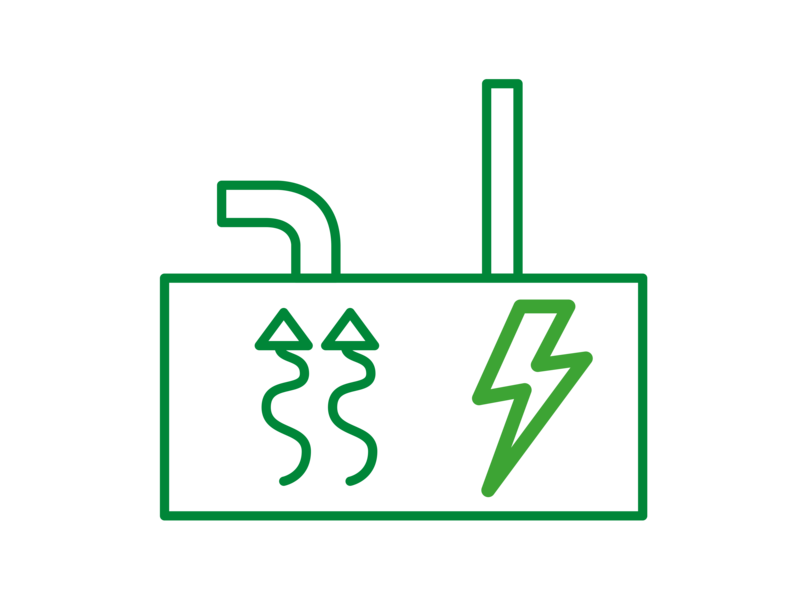
Germany
At our production site in Langenhaslach, we are able to cover 23 % of our annual electricity consumption ourselves through the use of a block-type thermal power station.
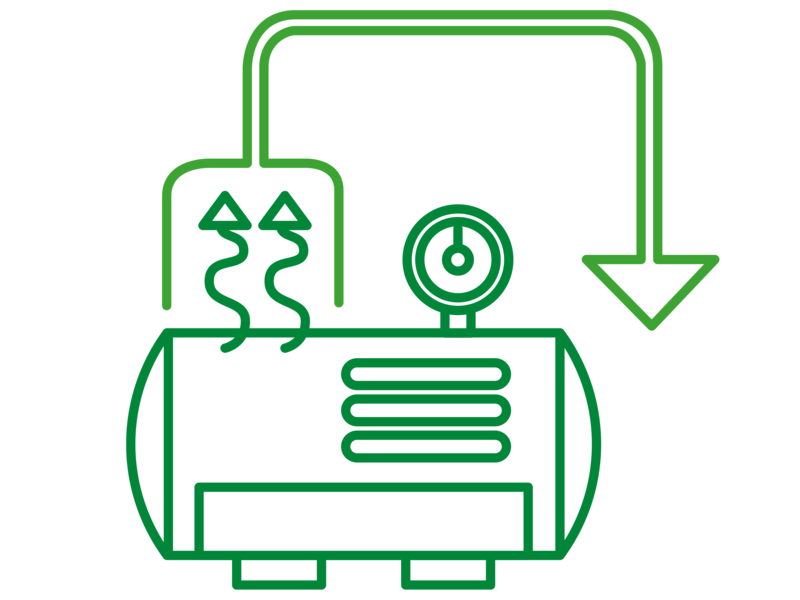
Czech Republic
At our site in Zasmuky, we save around 124 tonnes of CO2 annually by using LED lighting. Through heat recovery from compressors, an additional 41 tonnes of CO2 are saved annually.
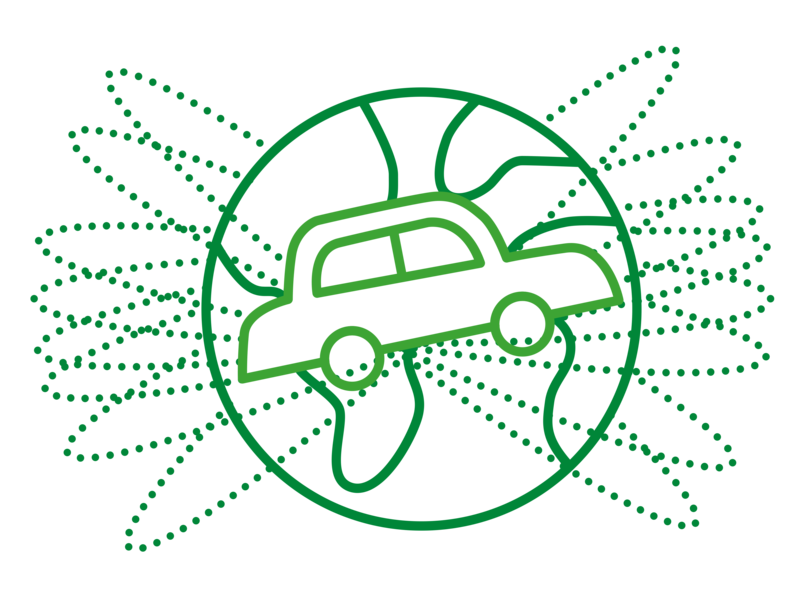
United Kingdom
By using LED lighting at our Redditch site, we can save around 50 tonnes of CO2 every year. For that, you can drive a car around the world almost 9 times.
Climate-friendly enjoyment - our product range makes it possible
Our products contain many valuable ingredients such as delicious vegetables and herbs. After harvesting, these are gently dried on site and then transported to our production facility.
Our products are full of good ingredients and are also good for the environment
Our products contain many valuable ingredients such as delicious vegetables, herbs and spices. After harvesting, the ingredients are gently dried on site before they are transported to our production facilities.
Most of our products are also vegetarian and vegan.
In addition, the majority of our products are vegetarian and vegan. This means that the extraction of our raw materials carries a low CO2 footprint. For example, per 100 g of vegetable broth powder, the equivalent of about 18g of CO2 is emitted. By comparison, 100 g of butter emits around 238 g of CO2.
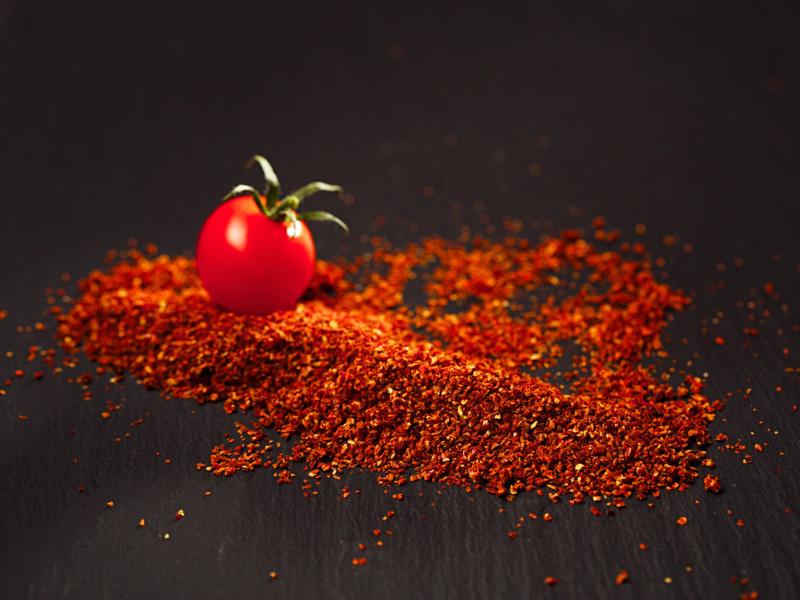
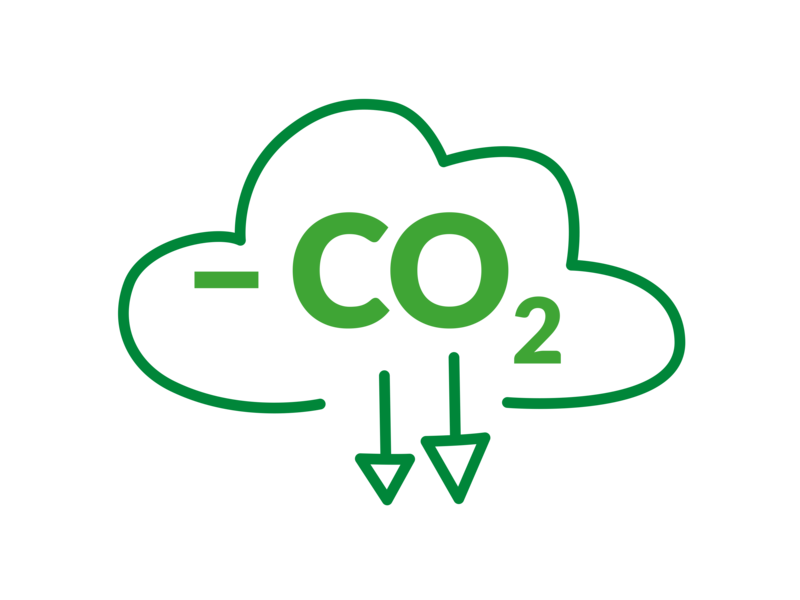
Less weight
Drying causes the raw materials to lose water and thus weight. The transport weight is greatly reduced and therefore causes less CO2. Thanks to the dried raw materials, our instant tomato soups are 8.5 times lighter than if we were to make them from fresh ingredients.
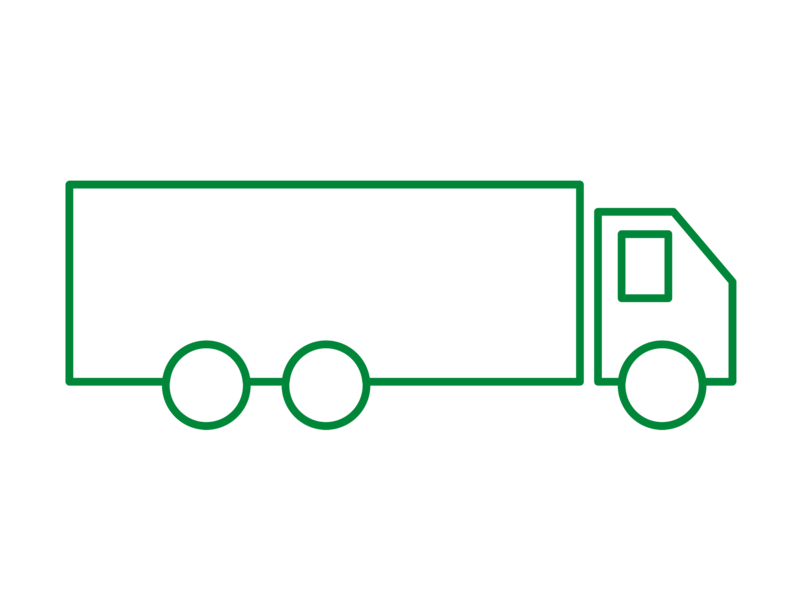
Less volume
Dried raw materials have a much smaller volume than fresh ones. For example, if 14 tonnes of tomatoes are transported in powder form instead of chunky, we can save a total of 10 truck journeys.
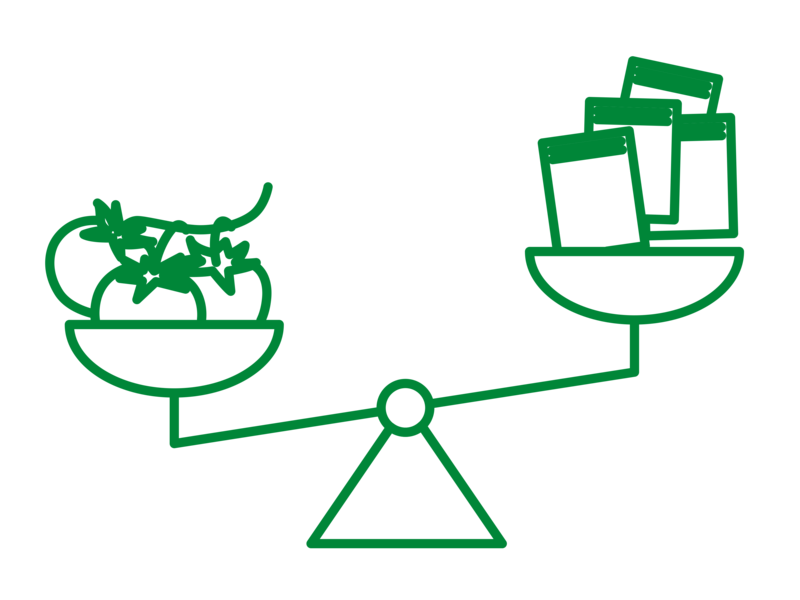
Less packaging material
Very often, dried foods reach the end customer with little packaging material. In addition, they do not have to be refrigerated during transport or on the sales shelf. This saves material and energy.


